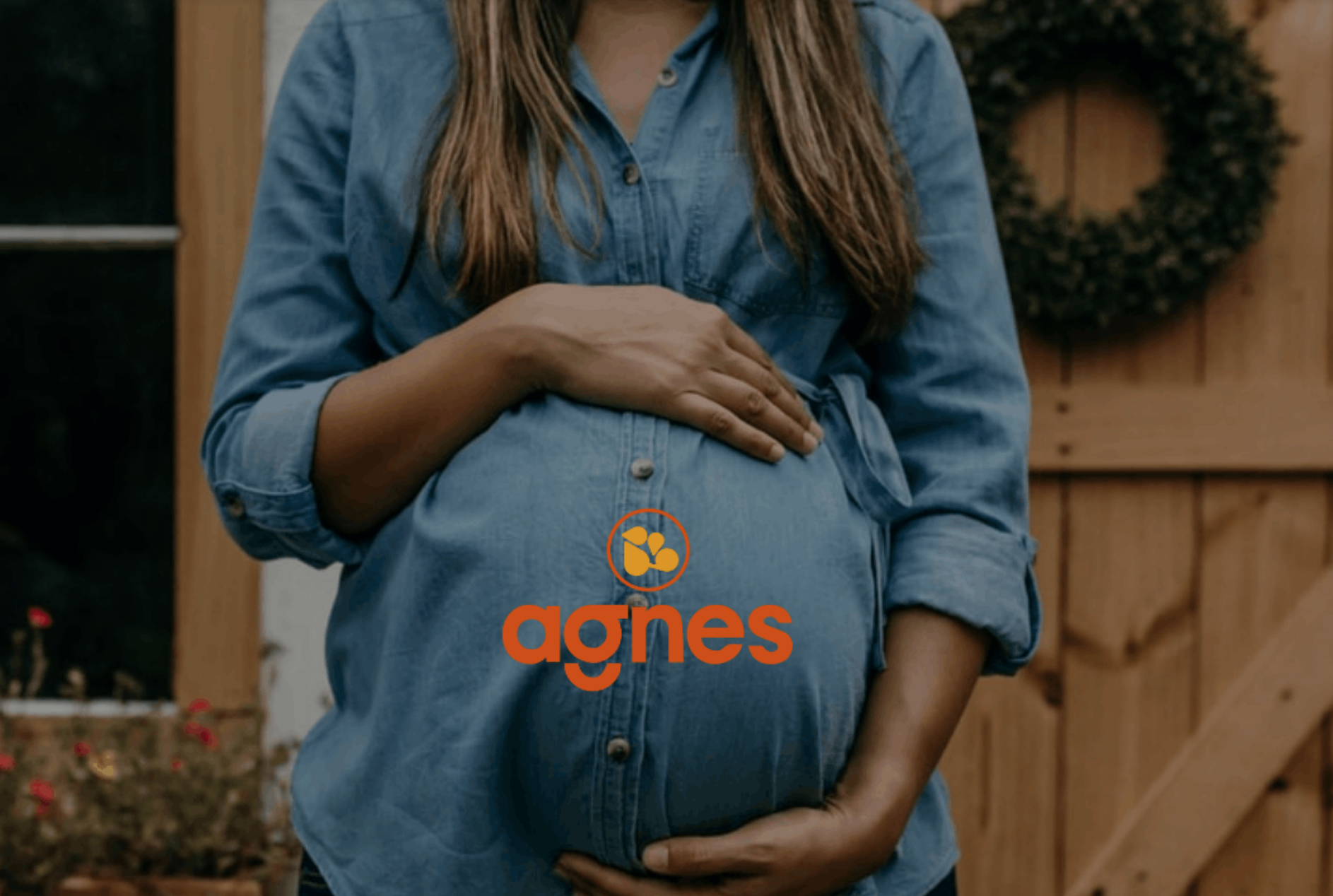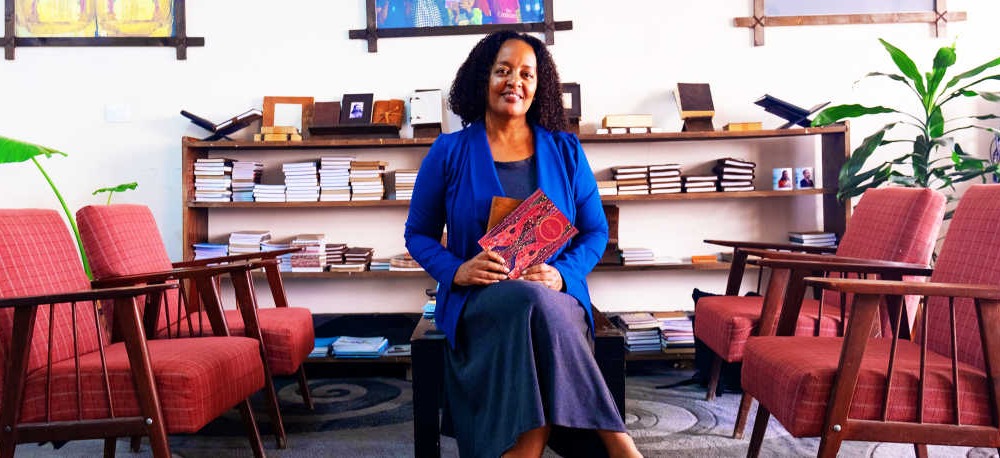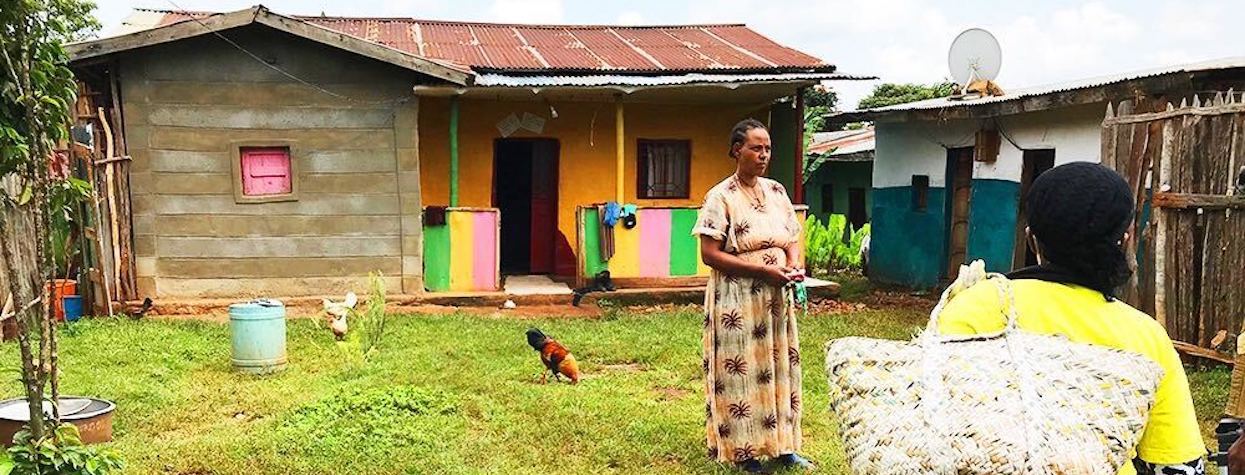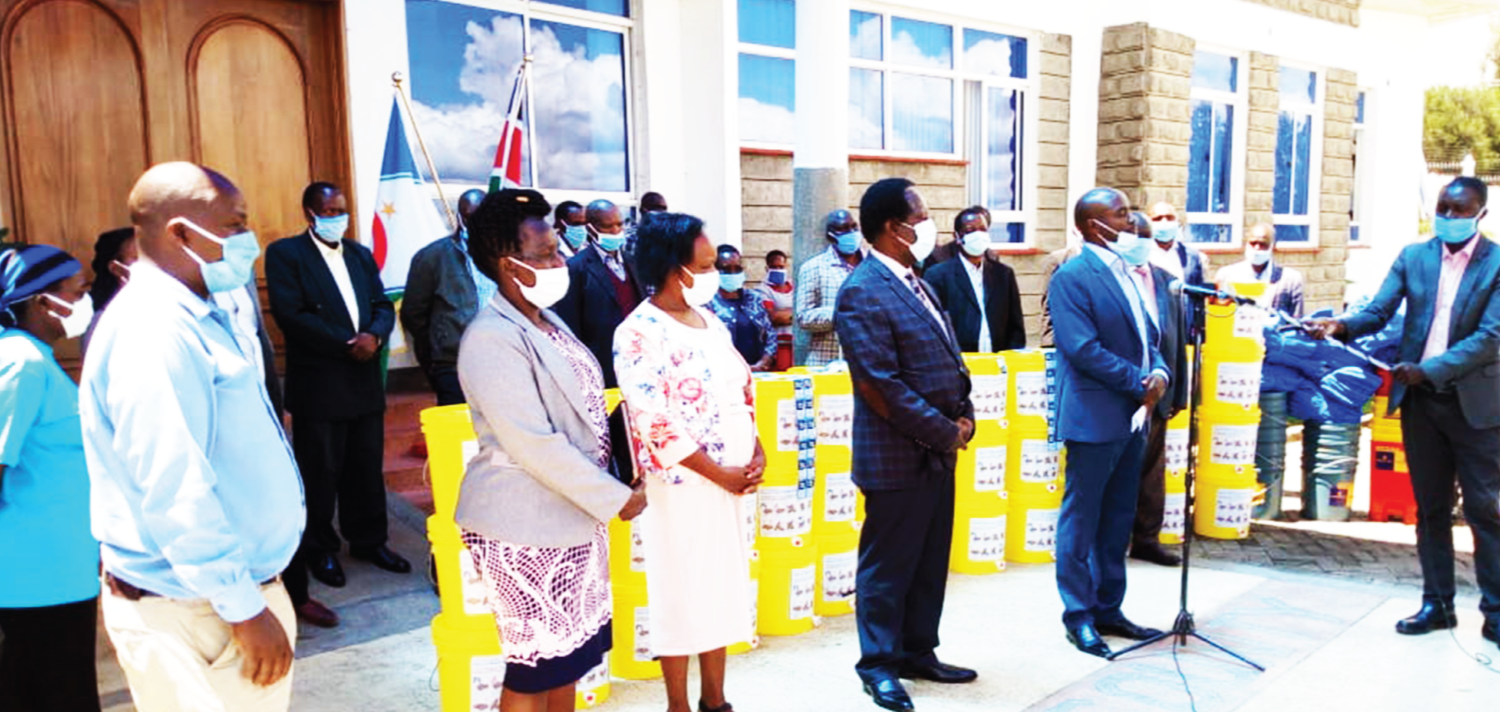After almost losing her child during pregnancy, Abisola Oladapo realized there was a serious gap in Nigeria’s maternal health education. “There were some decisions I made during my pregnancy that could have led to the loss of my child’s life,” Oladapo admitted. “That inspired me to use technology that would allow women like me to be empowered with information during pregnancy and beyond to make the right decisions for their health.”
Recognizing this gap between Nigerian women and their healthcare providers, Oladapo and Co-Founders Michelle Ijomah and Noel Abotti created Agnes: a maternal health app that connects pregnant users with board-certified midwives, providing a 24/7 tele-health service supplemented with educational content. To date, they have succeeded in lowering the risk of maternal death by four times and reducing newborn deaths by a whopping 22 times.
How Agnes combines tech and grassroots influences into one effective resource
Agnes was born out of a personal experience, but it evolved to serve an increasingly pressing need for at-home care during the COVID-19 pandemic. Oladapo realized that expectant parents weren’t attending their in-person appointments for fear of outbreaks, and she felt that Agnes would provide a safer alternative.
Even as COVID rates ebb and flow, Oladapo believes that Agnes is and will continue to be an important wellness and communication tool. She explained that less than 10 percent of the entire 9-month pregnancy period consists of doctor-patient interactions. However, the time between appointments has the potential to leave parents in vulnerable — and potentially detrimental — positions for making healthcare decisions.
While the app made healthcare more accessible during the pandemic, the Agnes team also wanted to ensure access for users with varied educational and socio-economic statuses, particularly those in remote areas. To ensure all parents can benefit regardless of location or literacy abilities, Agnes currently provides all content in an audio format in multiple local languages and dialects. According to Oladapo,“67 percent of women in Africa are illiterate or semi-literate. We made sure that audio was available so that access to health education was the same for a woman who had gone to school [as] a woman who had not gone to school.” She emphasized that this accessibility element would allow the team to reach and serve more parents.
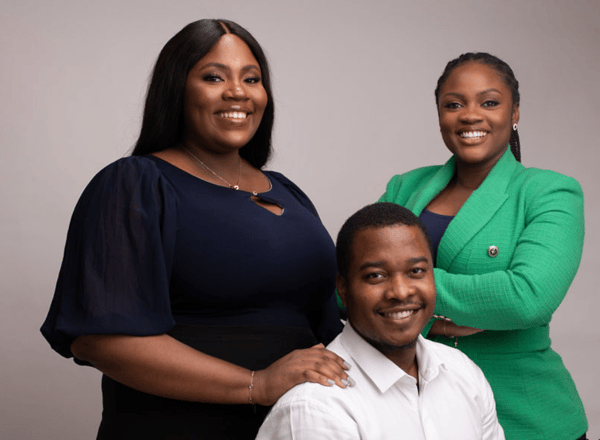
Agnes team: Michelle Ijomah, Abisola Oladapo, and Noel Abotti.
Looking inward to reach gender equity
While Agnes’ existence promotes gender equity in healthcare as is, Oladapo and Ijomah want to ensure that their organization is doing the same internally as it scales.
The two applied to join Acumen Academy’s Gender Equity and Advancement Accelerator, an 11-week program that guides a cohort based in East and West Africa through the process of embedding gender equity into their business model as they scale. Although gender and womanhood are at the heart of their product, Agnes’ founders were excited to learn more about how to remain equitable internally as they scale their company. “It’s one thing to be one of the co-founders, but a completely different thing to be one of the frontline workers. [We want to] make sure that we’re building a company that is equitable at every level,” expressed Oladapo.
One of the accelerator lessons that had a profound impact on their business model was from a case study about Acumen portfolio company Frontier Markets. “After looking at the case study, we started to realize that some of those insights we’re getting [from users] could show some other needs that may be ancillary to health but not directly health. It has opened up what is possible for us,” Oladapo explained. When thinking about externally-facing factors, the two co-founders realized they had an opportunity to talk to their users directly in order to find gaps in their policies around inclusivity.
Internally, Ijomah, a product and tech developer by trade, began to realize the impact of working on primarily male-dominated teams. “If you look across the globe, you have a lot more men in tech and software,” Ijomah noted. With this in mind, she made a commitment to bring more women onto Agnes’ tech-based teams, particularly women engineers.
However, “It’s not actually just ‘hire women,’” Ijomah has learned. In fact, she plans on making lasting changes to her hiring practices going forward, which include a detailed training process and the growth of their internship program to ensure that newly-hired women are equipped to succeed and are confident in their abilities.
A sacred space for women-identifying voices
Agnes was also a part of an essential and healing feature of the accelerator. Soon after the program started, leaders noticed that gender norms were showing up even in the carefully facilitated sessions. From there, the facilitators created a dedicated space where women could speak vulnerably about the specific struggles they face as founders. Titled the Gender Affinity Group, Ijomah describes it as a resource she didn’t even know she needed. “You hear the things that people are going through in different parts of the world — how women are perceived and the challenges that this has posed for them in business and their careers,'' Ijomah recalled.
She even mentions that these “group therapy sessions” have trickled into her own business practices. “I subconsciously started doing it with my interns,” Ijomah explained, describing a recent team meeting where she told everyone to “come as they are.” She invited them to ask for what they needed and to bring forth any issues they were having so that she could implement those concerns into an internal process going forward. “What we talk about in those sessions influences my decisions,” she remarked.
Through their focus on accessibility and inclusivity on the ground, their plans to hire and onboard more women in tech, and their actions to go deep with their teams as inspired by the Gender Affinity Group, Agnes is well on their way to scaling with refined clarity and purpose. Even as this groundbreaking femtech company guides thousands of women, they aren’t above asking for a little direction themselves. Said Oladapo, “I’m so glad that we chose to move forward with this accelerator. It was probably one of the best decisions we made this year.”
Agnes is currently using their newfound skills to fundraise $800,000 towards their ever-growing journey in expanding the company’s gender equity solutions.
Learn more about Agnes and their maternal healthcare work here.
Want to explore our Accelerator programs around the world? Check out all of our Accelerator programs here!
Acumen Academy’s Gender Equity and Advancement Accelerator is supported by Global Affairs Canada.
